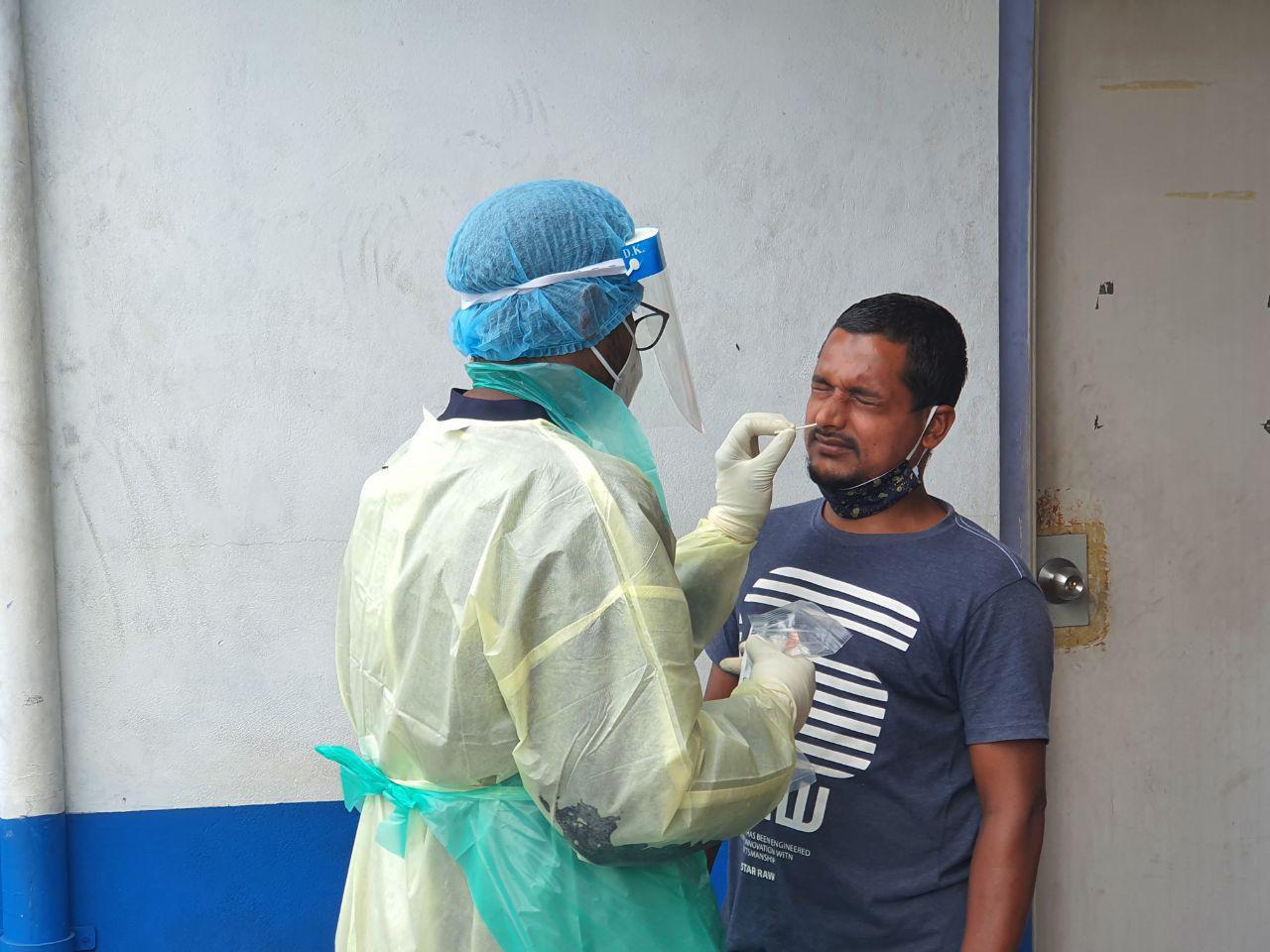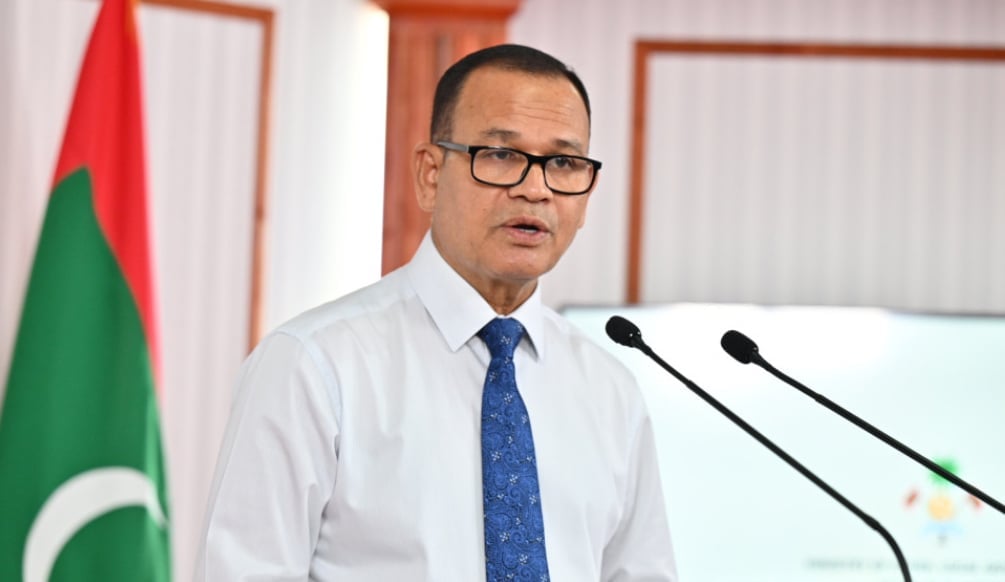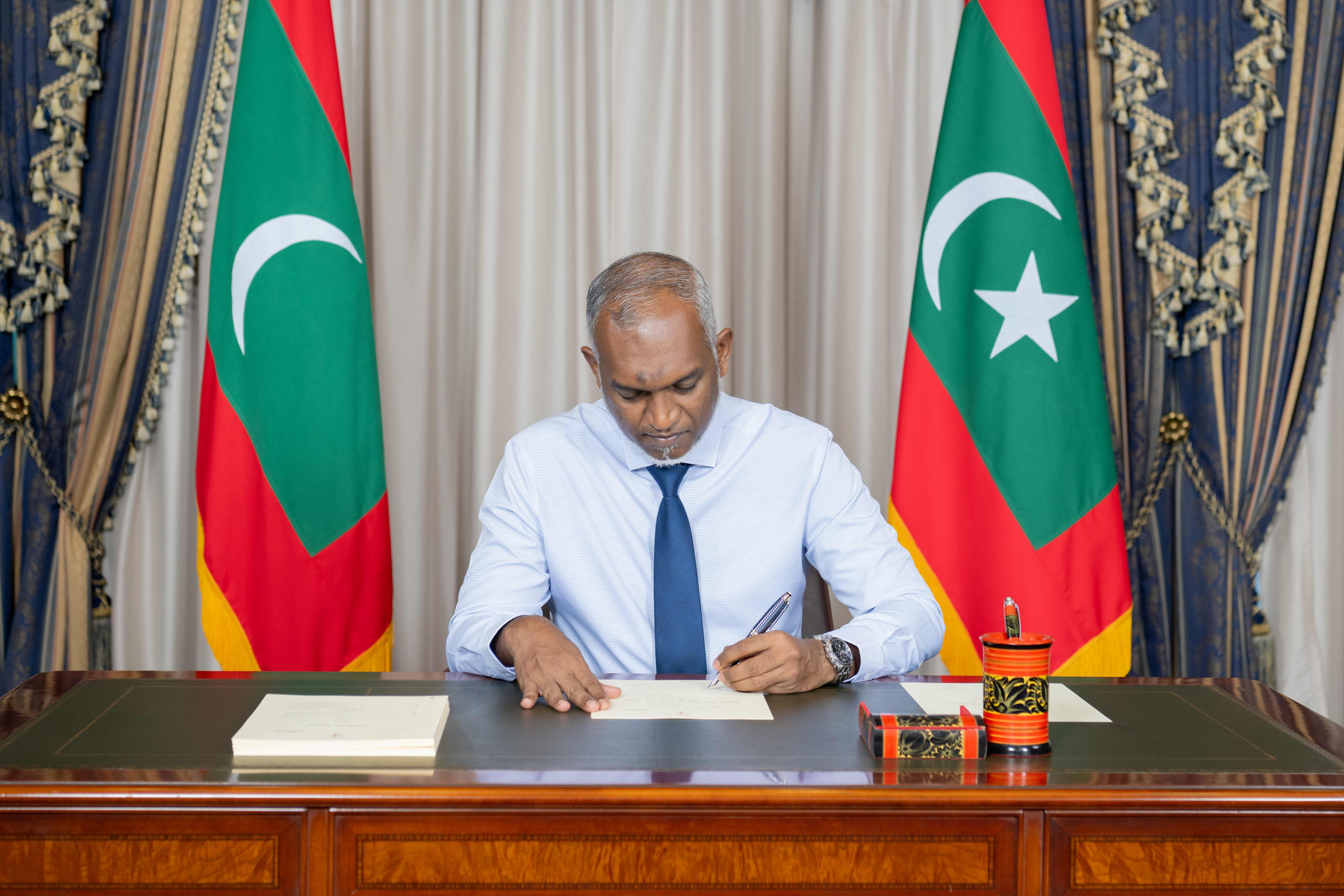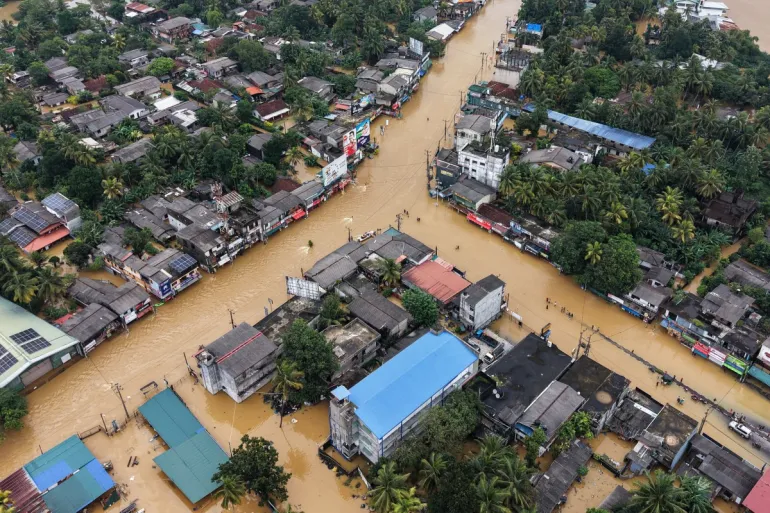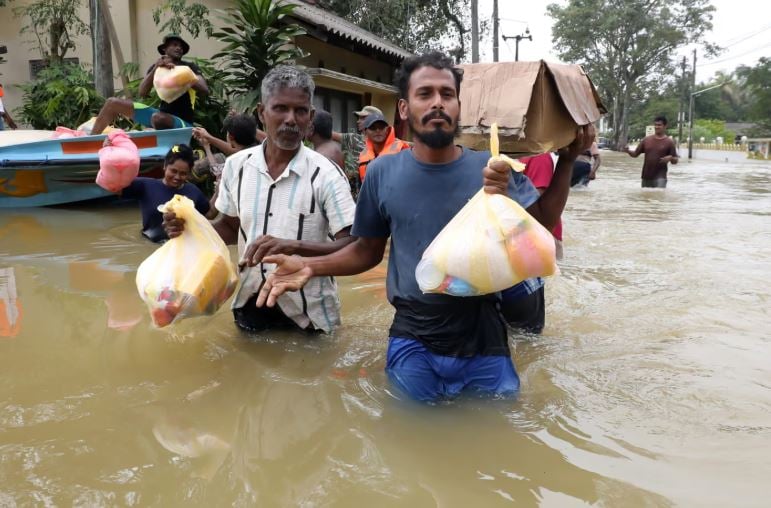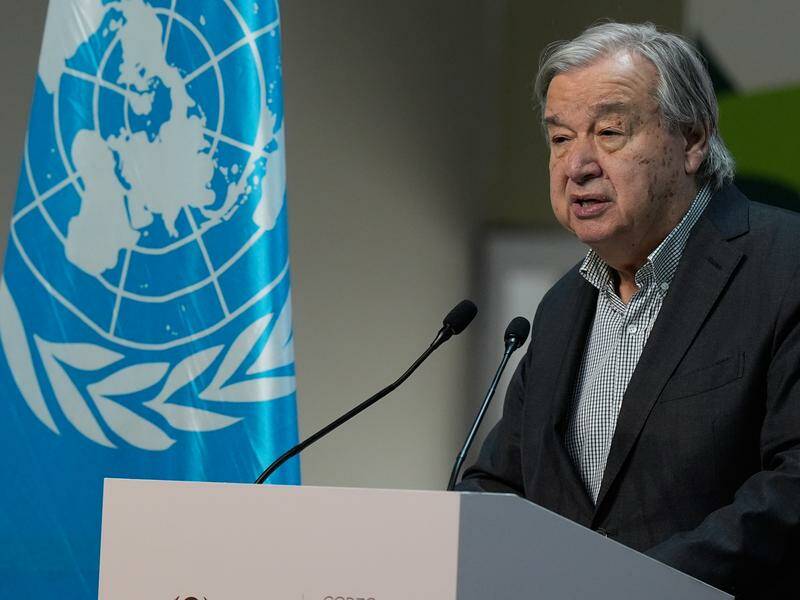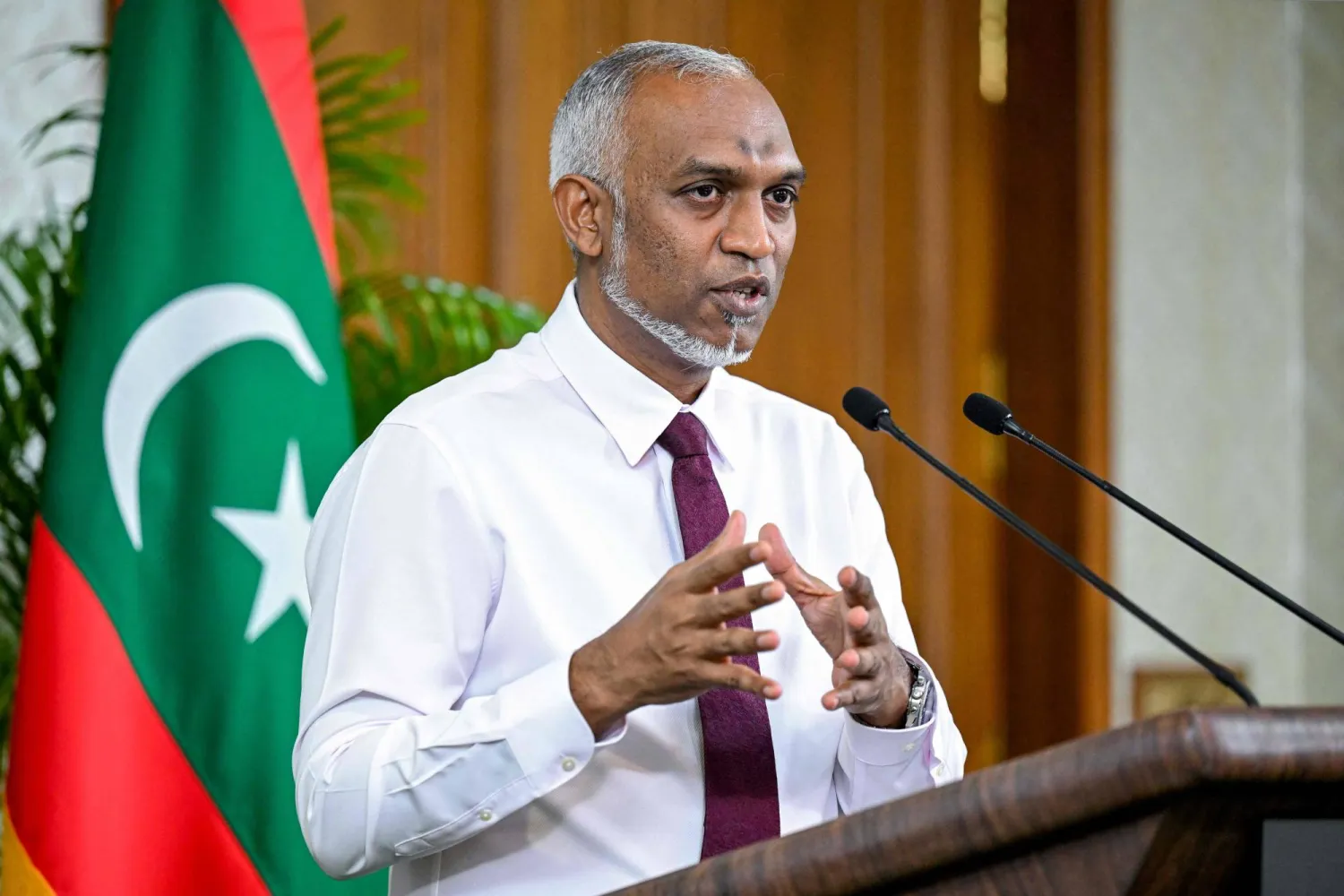Maldives closed its international borders due to the ongoing pandemic of Covid-19, which stopped the major cash flow of the economy dependency of the Maldives, the tourism industry, along with this and closing down of many businesses, people ended up with losing jobs and financially challenged. But as always, the Maldivian community showed unity and the commutative spirit to provide assistance to those affected.
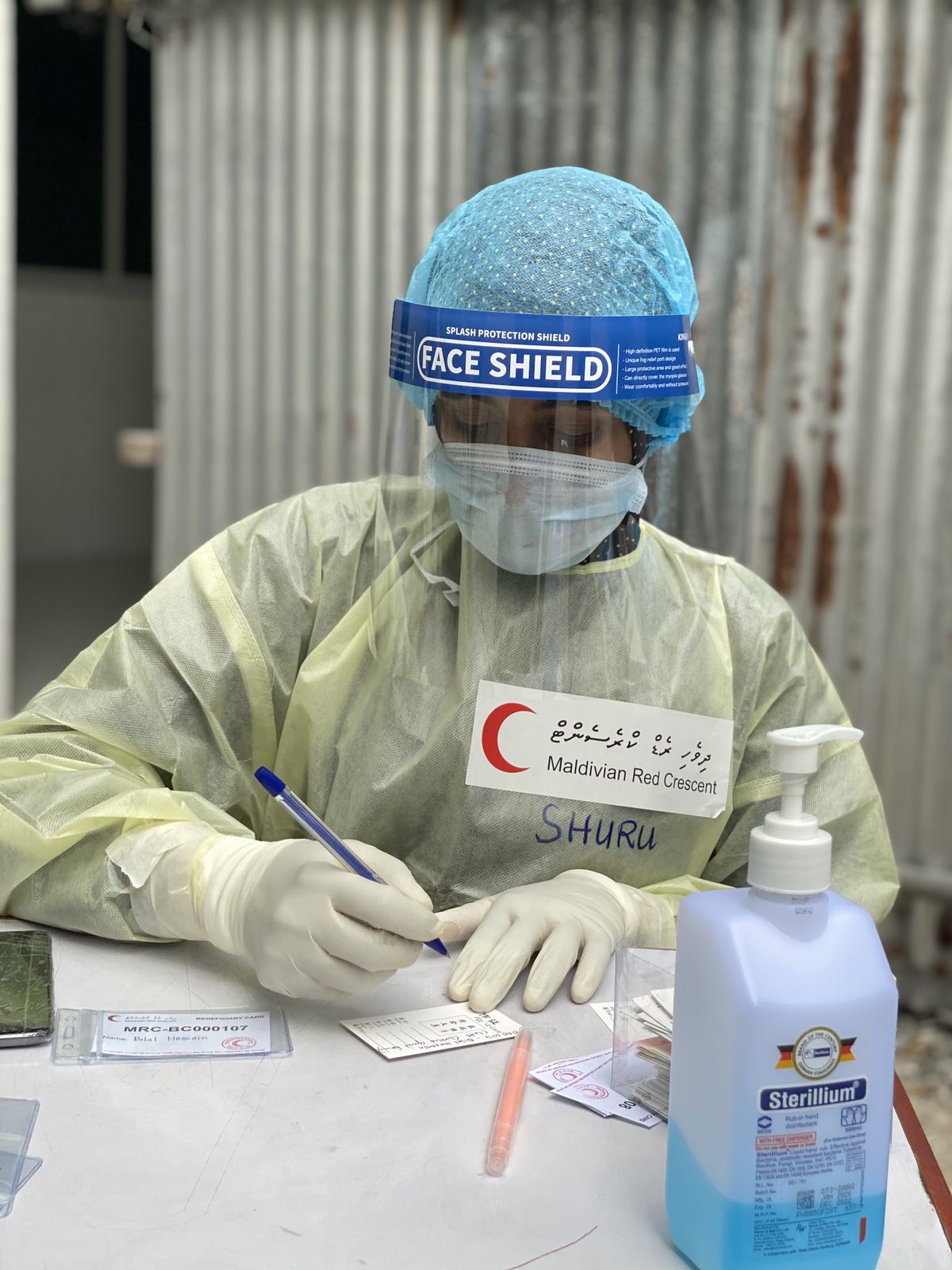
A volunteer from MRC working at the frontline in PPE. Photo: Social Media.
Our own battle against the virus is strengthened by the hard work, resolve and dedication shown by those working round the clock on the very frontline. People from different sectors have joined their hands at the frontline, to battle the Covid-19 virus and to keep our community safer. These frontline workers vary from doctors, nurses, health workers, Police, MNDF to volunteers at different levels.
While the fronliner's have been working away from their own families, to ensure safety for them, we have seen frontliners and their families getting kicked out from their homes, just because the landlords of many do not feel safe to have a frontline worker at their home. To address this, the government offered support to accommodate the frontline workers, but at the end, the audit showed that this support was only received by a few frontliners. Governments allowance scheme to address the financial challenges and provide an incentive to frontline workers, ended up in a very questionable manner as well. While the person at the forefront, risking their life barely received any allowance, the person behind a desk received more, is it fair though?
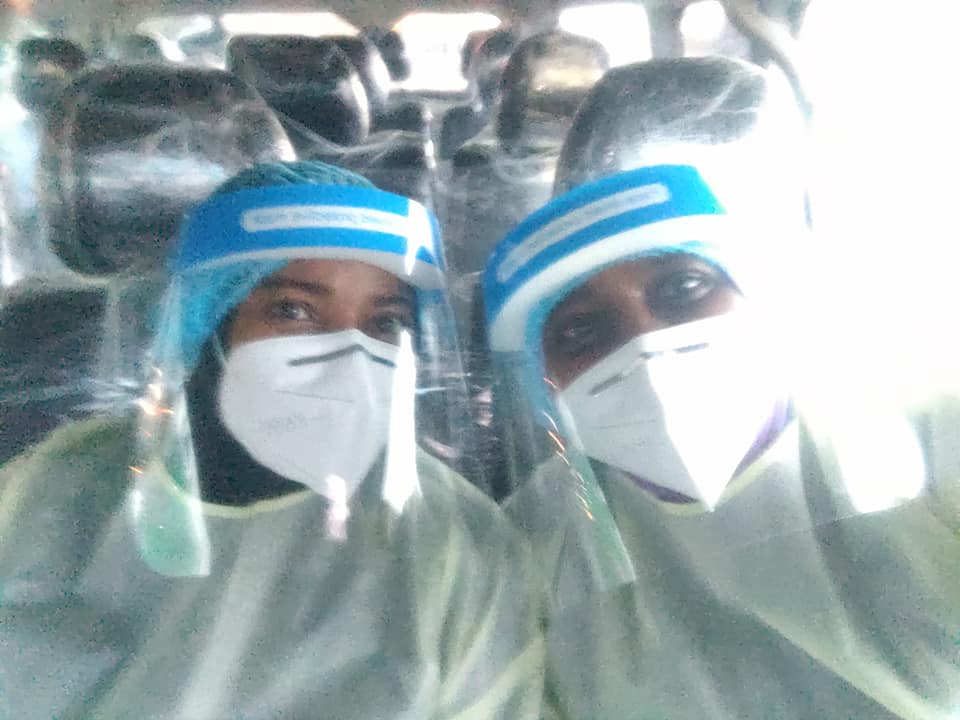
Frontline workers in PPE, inside a vehicle Photo: Social Media
Frontline workers have been challenged with many difficult situations, being away from home to supporting someone else’s mental health wellbeing while being physically and mentally exhausted. Along with this, so many frontline workers have been facing verbal and physical abuse towards them from the public. The frustration we have towards the government entity was spilled to the frontline workers as they are the first people we meet. Stigma towards the frontline workers has not faded away either.
Our team at ‘Ras Online’ obtained a chance to speak to some of the frontline workers and collected some of their experiences at the forefront.
Mariyam Shifana Hussain, a volunteer at the frontline said “I started volunteering for the pandemic from the very beginning in February from MRC, as a Covid awareness trainer, then I volunteers at the PSS call centre and after that at NEOC operations as an ERT member. For the past 6 months I have been a member at Rapid Response Team (RRT) from MoE as a sample taker, and as a PSS service provider for transfers and triage positive high risk patients. At the beginning there was no fixed time of work, some days we could be working for almost 12-16 hours as there were very few people with medical background. Since we are the first people reaching the public, people will spill out all the frustrations they have about the pandemic to us, rarely these have been acts of violence or verbal abuse. This is a very challenging work, especially being away from home and kids for so long. I remember having meals and playing scrabble online with my kids, because I was unable to go home due to the risk. I felt so sad at times thinking about how my kids would feel being away from their mom. Along with the mental challenges facing from the public, this job is the most physically challenging job I have experienced so far. I remember almost fainting in the month of Ramadan, due to heat and exhaustion. I have seen a wide range of emotions that people experience during the pandemic, the fear they have towards the virus and us, and the misconception that the frontliners might be the cause of the spread. My advice to the public is: stay safe, get tested! Throughout all this, My family and friends have been my strength. I have met the most beautiful selfless souls working here. This is not an easy job but there is nowhere else I would rather be. RRT is home.''
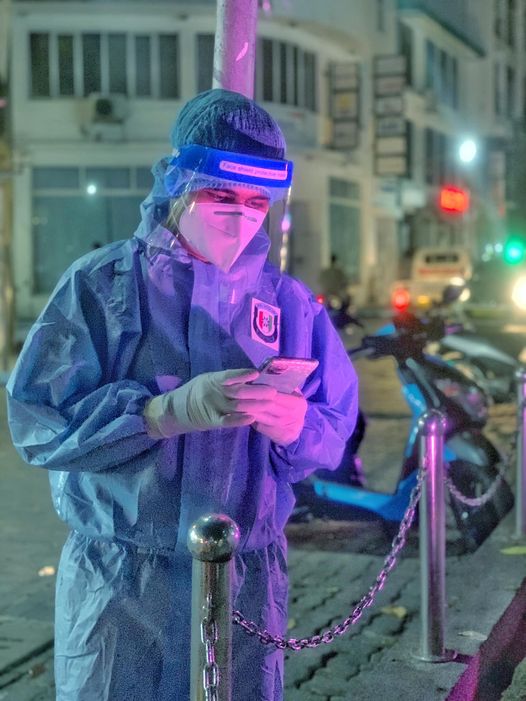
Frontline worker from Maldives Police Service in PPE. Photo: Social Media
Hassan Ashiyam, a volunteer at the frontline said “We have faced many challenges, from being away from family, to while transporting the positive patients to facilities. We are mostly in our PPE’s and we cannot eat or drink anything while wearing it. We also have to avoid taking the lift to high storey buildings and walk up to 7 or 8 floors of buildings while wearing PPE. and it is very sad to see people being rude to us, when we tell them nicely to keep a safe distance for their own safety”
A volunteer at the frontline (who wanted to disclose their name) has said "Nearly a mere two hours inspecting and standing in PPE and I nearly fainted of the heat (that too at night when it's cooler, I shudder to think of my situation in this get-up during day time and longer hours), not to mention the itch feeling and not able to itch, the thirst and not able to drink water, the headache and what nots - this is a new found level of discomfort.God bless all frontliners working day in and day out and Respect, Respect & More Respect"
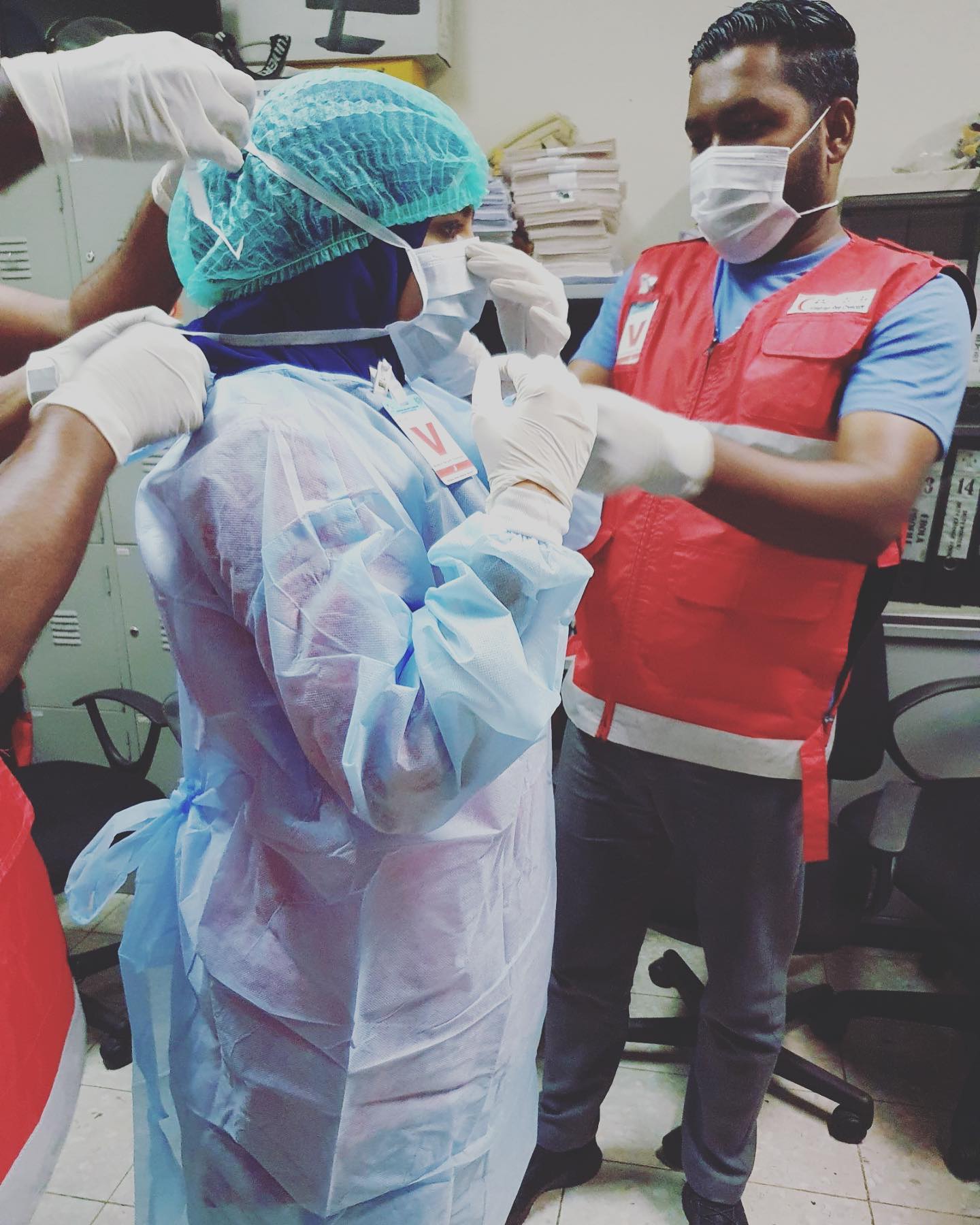
Frontline workers helping to wear PPE. Photo: Social Media
Mohamed Nimal, a volunteer at the frontline said "Be kind to the frontline workers, from the time they start donning (put the PPE on) and till the time they doff (take the PPE off) may have extended to a 7 or 8 hour shift at least, even though they are only actively engaged with the public for a few hours during this shift. It is not a comfortable feeling, excessive sweating, dry mouth, partly deaf. Definitely would not recommend for any of us to be in the situation but we did it in the scorching heat, while we were fasting, through the long hours of the night, travelled the rough seas, to try and make our community a covid safe place and help the vulnerable"
The level of courage and selflessness the frontline workers have shown deserves more than just a thank you. Working day and night from carrying out sample collections to transferring Covid-19 positive patients, providing Psychological support and addressing the needs of the patients are major tasks carried out by the frontliners.

A volunteer from MRC working at the frontline in PPE. Photo: Social Media.
Our own battle against the virus is strengthened by the hard work, resolve and dedication shown by those working round the clock on the very frontline. People from different sectors have joined their hands at the frontline, to battle the Covid-19 virus and to keep our community safer. These frontline workers vary from doctors, nurses, health workers, Police, MNDF to volunteers at different levels.
While the fronliner's have been working away from their own families, to ensure safety for them, we have seen frontliners and their families getting kicked out from their homes, just because the landlords of many do not feel safe to have a frontline worker at their home. To address this, the government offered support to accommodate the frontline workers, but at the end, the audit showed that this support was only received by a few frontliners. Governments allowance scheme to address the financial challenges and provide an incentive to frontline workers, ended up in a very questionable manner as well. While the person at the forefront, risking their life barely received any allowance, the person behind a desk received more, is it fair though?

Frontline workers in PPE, inside a vehicle Photo: Social Media
Frontline workers have been challenged with many difficult situations, being away from home to supporting someone else’s mental health wellbeing while being physically and mentally exhausted. Along with this, so many frontline workers have been facing verbal and physical abuse towards them from the public. The frustration we have towards the government entity was spilled to the frontline workers as they are the first people we meet. Stigma towards the frontline workers has not faded away either.
Our team at ‘Ras Online’ obtained a chance to speak to some of the frontline workers and collected some of their experiences at the forefront.
Mariyam Shifana Hussain, a volunteer at the frontline said “I started volunteering for the pandemic from the very beginning in February from MRC, as a Covid awareness trainer, then I volunteers at the PSS call centre and after that at NEOC operations as an ERT member. For the past 6 months I have been a member at Rapid Response Team (RRT) from MoE as a sample taker, and as a PSS service provider for transfers and triage positive high risk patients. At the beginning there was no fixed time of work, some days we could be working for almost 12-16 hours as there were very few people with medical background. Since we are the first people reaching the public, people will spill out all the frustrations they have about the pandemic to us, rarely these have been acts of violence or verbal abuse. This is a very challenging work, especially being away from home and kids for so long. I remember having meals and playing scrabble online with my kids, because I was unable to go home due to the risk. I felt so sad at times thinking about how my kids would feel being away from their mom. Along with the mental challenges facing from the public, this job is the most physically challenging job I have experienced so far. I remember almost fainting in the month of Ramadan, due to heat and exhaustion. I have seen a wide range of emotions that people experience during the pandemic, the fear they have towards the virus and us, and the misconception that the frontliners might be the cause of the spread. My advice to the public is: stay safe, get tested! Throughout all this, My family and friends have been my strength. I have met the most beautiful selfless souls working here. This is not an easy job but there is nowhere else I would rather be. RRT is home.''

Frontline worker from Maldives Police Service in PPE. Photo: Social Media
Hassan Ashiyam, a volunteer at the frontline said “We have faced many challenges, from being away from family, to while transporting the positive patients to facilities. We are mostly in our PPE’s and we cannot eat or drink anything while wearing it. We also have to avoid taking the lift to high storey buildings and walk up to 7 or 8 floors of buildings while wearing PPE. and it is very sad to see people being rude to us, when we tell them nicely to keep a safe distance for their own safety”
A volunteer at the frontline (who wanted to disclose their name) has said "Nearly a mere two hours inspecting and standing in PPE and I nearly fainted of the heat (that too at night when it's cooler, I shudder to think of my situation in this get-up during day time and longer hours), not to mention the itch feeling and not able to itch, the thirst and not able to drink water, the headache and what nots - this is a new found level of discomfort.God bless all frontliners working day in and day out and Respect, Respect & More Respect"

Frontline workers helping to wear PPE. Photo: Social Media
Mohamed Nimal, a volunteer at the frontline said "Be kind to the frontline workers, from the time they start donning (put the PPE on) and till the time they doff (take the PPE off) may have extended to a 7 or 8 hour shift at least, even though they are only actively engaged with the public for a few hours during this shift. It is not a comfortable feeling, excessive sweating, dry mouth, partly deaf. Definitely would not recommend for any of us to be in the situation but we did it in the scorching heat, while we were fasting, through the long hours of the night, travelled the rough seas, to try and make our community a covid safe place and help the vulnerable"
The level of courage and selflessness the frontline workers have shown deserves more than just a thank you. Working day and night from carrying out sample collections to transferring Covid-19 positive patients, providing Psychological support and addressing the needs of the patients are major tasks carried out by the frontliners.





